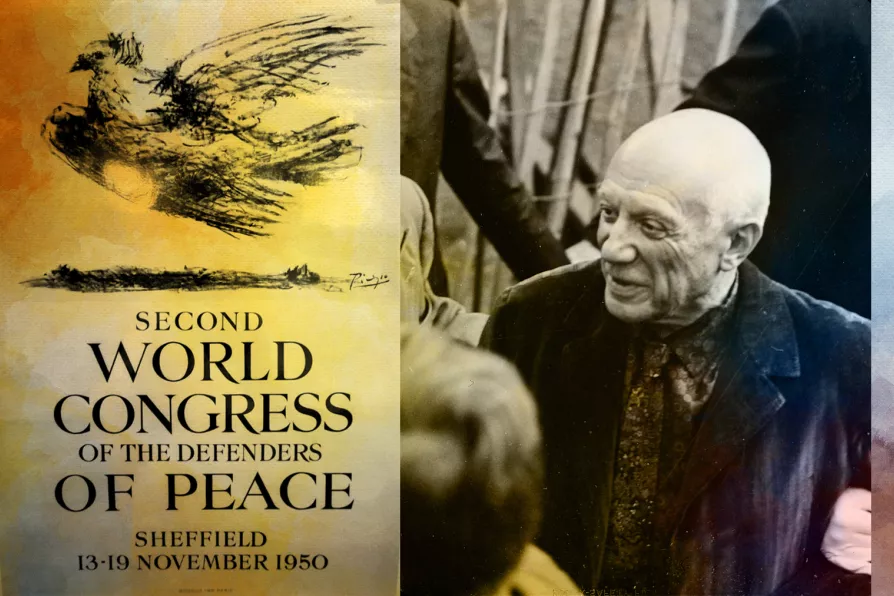The Carpathia isn’t coming to rescue this government still swimming in the mire, writes LINDA PENTZ GUNTER

 A poster advertising the peace congress and Pablo Picasso who was initially denied a visa to enter Britain for the event
[Picasso image: Paulo Monti / Creative Commons]
A poster advertising the peace congress and Pablo Picasso who was initially denied a visa to enter Britain for the event
[Picasso image: Paulo Monti / Creative Commons]
SEVENTY years ago, from November 13 to 19 1950, a huge international peace conference was to have taken place in Sheffield, with thousands of delegates attending from across the world.
To its eternal shame, the Labour government of the day did everything in its power to stop it.
But, while it may have succeeded in foreshortening the meeting in Britain, a one-day event was held, despite every obstacle placed in its way.

STEPHEN BELL reports from a delegation that traced the steps of China’s socialist revolution from its first modest meetings to the Red Army’s epic 9,000km battle to create the modern nation that today defies every capitalist assumption

Activists from across the world gathered in China for an educational exchange where they witnessed the progress the country has made in building an ecological society and discussed the path to peaceful international relations, reports CALLUM NORRIS

LIZ PAYNE condemns how Labour backs war in Gaza and Ukraine, and massive funding for Trident’s nuclear bombs, when billions are needed just to restore public services










